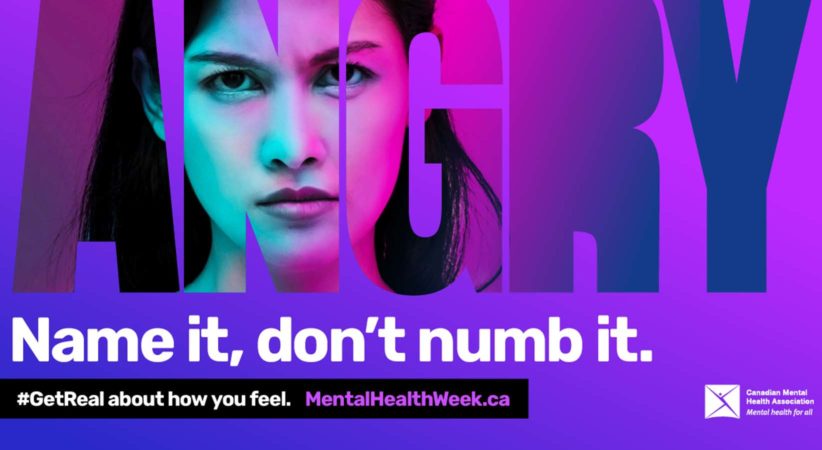Express Emotions – Name it, don’t numb it.
Being able to name and express emotions – the ones we like and the ones we don’t like – is important for mental health.
Naming, talking and writing about our emotions can help us manage them. It can help us deal with uncomfortable feelings. It can help us recognize feelings in others. It’s an important skill for adults and children. To learn more, read the CMHA Mental Health Week 2021 Fact Sheet.
In order to name and express emotions, we need a vocabulary for emotions. The larger the vocabulary, the more clear we can be about describing how we feel.
Teaching Emotion Vocabulary
- Activities to Increase Emotional Vocabulary
- Got SEL? Teaching Students to Describe Emotions
- Printable Feelings & Emotions Cards with 8 Matching Card Games Ideas
- CMHA Mental Health Week School Toolkit
- Teaching Mental Health in the ESL Classroom
Vocabulary Lists and Tools
- Merriam-Webster Learner’s Dictionary: Words for emotions
- Feelings Cards
- In the Mood? 100 Ways to Describe How You Feel
- List of Emotions: A Huge List of Useful Words to Describe Feelings and Emotions
- List of Feeling Words From A to Z
Books about Feelings
One way to introduce children to words for feelings is through books. Find suggestions for books about feelings in:
- 21 Awesome Kids’ Books Exploring Feelings and Emotions
- 21 Multicultural Children’s Books About Feelings
- Books to Help Kids Handle All Kinds of Uncomfortable Feelings
- Children’s Books About Feelings to Nurture Emotional Intelligence!
- Children’s Books That Teach Kids About Emotions
This week is CMHA Mental Health Week. The theme is ‘Name it, don’t numb it. #GetReal about how you feel.’
Related Blog Posts
StoryWalk® – Walk and Read Together
We often think of family read aloud as a cozy time spent indoors. But you can combine fresh air, exercise and books for a fun outdoor family reading experience. Have …
Friday Fun: Books in the Movies
This summer explore the recent books adapted into movies and tv shows.
BC Summer Reading Club – Crack the Case!
School-age children are invited to Crack the Case! with BC Summer Reading Club.

